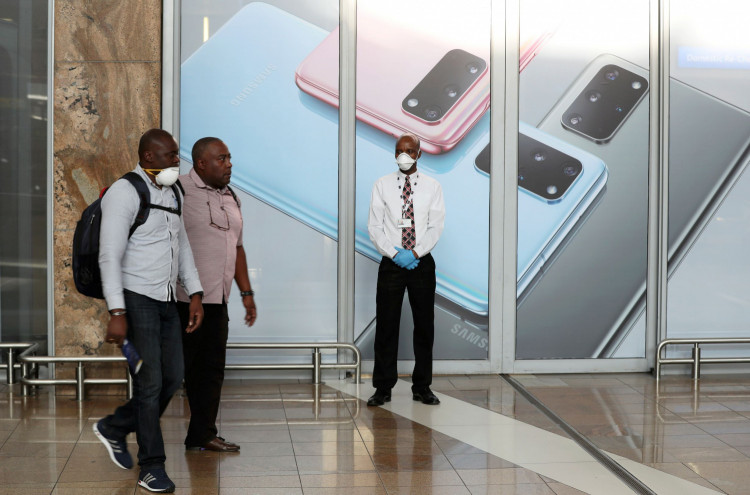President Donald Trump's political decision to abruptly inflict a ban on travel from Europe caused massive numbers of returning Americans to jampack 13 airports in the United States, creating the ideal breeding ground for the hastening of the spread of COVID-19. Trump's decision took effect March 14 after he announced it only on March 11.
U.S. media is reporting on and broadcasting horrific scenes showing massive lines of returning Americans standing shoulder-to-shoulder trapped at the only 13 U.S. airports such as Chicago O'Hare, Dallas-Fort Worth and Dulles International allowed disembarking travelers from Europe. Health officials expressed alarm at packing so many Americans -- many of them returning from COVID-19 infected countries -- in such small spaces in violation of federal health guidelines.
"At this time, the goal is to prevent transmission of disease. Any crowded space -- churches, grocery stores, airports -- all increase the probability of transmission" said Joyce Johnson, a senior retired U.S. Public Health Service Commissioned Corps officer.
Mike Fraser, executive director for the Association of State and Territorial Health Officials, said the large crowds at these airports is worrying, and hopes federal and airport authorities will work with the airlines and state and local health agencies to practice appropriate infection control measures everywhere. He recommends staggered arrivals to reduce the number of people congregating in one place.
Federal officials promised Sunday to solve the disease-breeding chaos at jampacked airport terminals where Americans returning to the U.S. over the weekend waited for as long as four hours for virus screening.
Contributing greatly with the airport bedlam was an earlier decision by the Trump administration to dramatically reduce the number of airports where air travelers returning from Europe can enter the U.S.
Also adding to the mayhem was a decision by Customs and Border Protection (CBP) and health officials on Friday to begin "enhanced screening" for returning Americans. This enhanced test consists of temperature checks and questions about travel history and symptoms. CBP, however, remains understaffed by 2,700 persons. Social distancing is impossible at these packed airports.
"It's not good public health policy to have crowds of people in tight spaces, especially people who are returning from places where we know there's widespread transmission occurring," said John Auerbach, president and CEO of Trust for America's Health.
He said there should be serious consideration of unintended consequences of Trump policies such as the European travel ban. Illinois political leaders blamed Trump for the horrendous mess, saying the federal government is clearly unprepared to carry out Trump's orders. O'Hare International Airport in Chicago is one of the 13 airports now reeling under the flood of returning Americans.
"Appears source of delays all federal and Admin was unprepared after Presidential ban on travel from Europe," tweeted Illinois Democratic Sen. Dick Durbin.
Illinois governor J.B. Pritzker tweeted: "The federal government needs to get its s@#t together. NOW."
Durbin and Sen. Tammy Duckworth (D-IL) on Sunday jointly called on Trump to direct additional resources to the 13 airports where international passengers from coronavirus-impacted countries are disembarking. They called the Trump administration's response "unacceptable." They said O'Hare hasn't had any contact from the departments of Homeland Security and Health and Human Services or from CBP "to discuss how to accommodate these new travel restrictions, now in effect for travelers coming from 26 additional countries."
Chicago Mayor Lori Lightfoot demanded the Trump administration to immediately send more personnel to the 13 airports. She said the situation is "solely the responsibility of the federal government for not listening."
"When the federal government doesn't listen and when it doesn't bring the considerations of mayors and governors and other local officials into the equation, not only are you creating a disaster, not only are you creating a hazardous circumstance that threatens the public, you risk causing serious illness and death," she said Sunday.
CBP COO and acting Commissioner Mark Morgan said the agency is "working diligently to address the longer than usual delays" and several airports are already improving.
"We appreciate the patience of the traveling public as we deal with this unprecedented situation," said Morgan. "We're continuing to balance our efficiencies with ensuring the health and safety of all American citizens through enhanced medical screening."






